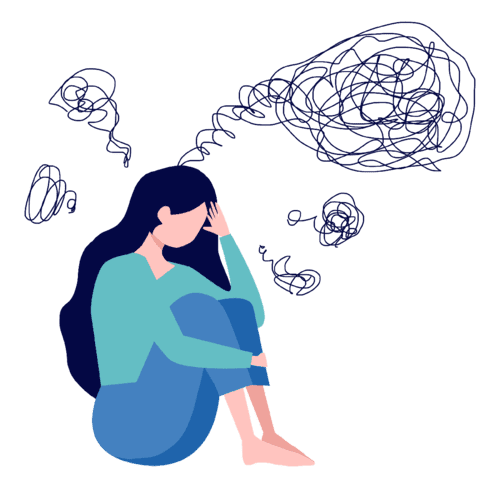Misophonia OCD Assessment
Free Misophonia OCD Assessment

What is Misophonia OCD Assessment?
Misophonia is not classified as a subtype of OCD but rather a separate condition. Misophonia is characterized by intense emotional reactions, such as anger or anxiety, triggered by specific auditory stimuli, often referred to as “trigger sounds.” It’s not considered an obsessive-compulsive disorder (OCD) but rather a sensory processing disorder. While both conditions can involve anxiety and distress, they have distinct features. A misophonia assessment would typically involve evaluating an individual’s emotional and physiological responses to trigger sounds to determine the presence and severity of misophonia symptoms. OCD assessments, on the other hand, focus on identifying obsessions, compulsions, and their impact on daily life.
Who can benefit from this Misophonia OCD Assessment?
Misophonia is not classified as a subtype of OCD but rather a separate condition. Misophonia is characterized by intense emotional reactions, such as anger or anxiety, triggered by specific auditory stimuli, often referred to as “trigger sounds.” It’s not considered an obsessive-compulsive disorder (OCD) but rather a sensory processing disorder. While both conditions can involve anxiety and distress, they have distinct features. A misophonia assessment would typically involve evaluating an individual’s emotional and physiological responses to trigger sounds to determine the presence and severity of misophonia symptoms. OCD assessments, on the other hand, focus on identifying obsessions, compulsions, and their impact on daily life.
Misophonia OCD Assessment Accuracy
Misophonia is not classified as a form of OCD. Misophonia is a condition characterized by strong emotional reactions, such as anger or anxiety, triggered by specific sounds. OCD, on the other hand, involves intrusive thoughts and ritualistic behaviors. While both can cause distress, they are distinct disorders. Accurate assessment is essential for effective treatment. Consulting a mental health professional ensures proper diagnosis and tailored interventions for each condition.
Types of Misophonia OCD Assessment
Symptom Description:
The individual is asked to describe the specific sounds or triggers that evoke strong emotional reactions. These could be noises they find particularly bothersome or that cause distress.
Emotional and Physiological Responses:
Explore the emotional reactions triggered by the sounds, such as anger, frustration, or anxiety. Inquire about physiological responses like increased heart rate or muscle tension.
Duration and Frequency:
Determine how long the reactions to trigger sounds last and how often they occur. Chronic and frequent reactions could indicate misophonia.
Contextual Information:
Understand if certain situations or environments exacerbate the reactions to trigger sounds.
Psychological Well-being:
Evaluate the individual’s overall psychological well-being, looking for signs of depression, anxiety, or other related conditions.
Impact on Life:
Assess how the individual’s life is affected by misophonia. Do these triggers lead to avoidance behaviors, isolation, or relationship difficulties?
Handling Misophonia OCD Issues
Misophonia is a condition where certain sounds trigger strong emotional reactions, often characterized by irritation, anxiety, or anger. While it’s not classified as an obsessive-compulsive disorder (OCD), it can share similarities in terms of distress and coping strategies. If you’re dealing with misophonia-related challenges, here are some steps you can take:
- Educate Yourself: Learn more about misophonia to understand its nature and causes. Understanding that your reactions are a result of this condition can help reduce feelings of guilt and frustration.
- Seek Professional Help: While misophonia is not classified as OCD, therapy approaches used for OCD, such as Exposure and Response Prevention (ERP), might be beneficial. Consulting a therapist who specializes in misophonia or similar conditions can provide tailored strategies.
- Mindfulness and Relaxation Techniques: Practices like mindfulness meditation, deep breathing, and progressive muscle relaxation can help you manage the strong emotions triggered by misophonia.
- Cognitive Reframing: Work on changing the way you think about the trigger sounds. This involves challenging negative thought patterns and developing more balanced perspectives.
- Behavioral Techniques: Gradual exposure to trigger sounds, under the guidance of a therapist, can help reduce the intensity of your reactions over time.
- Noise Masking: Using noise-cancelling headphones or white noise machines can help mask trigger sounds and provide relief.
- Healthy Coping Strategies: Engage in activities that you enjoy and that help you relax. This can provide a positive counterbalance to the distress triggered by misophonia.
- Communication: If possible, communicate with people around you about your condition. Explaining your triggers and needs can lead to better understanding and support.
- Environmental Modifications: Make changes to your environment to minimize exposure to trigger sounds. For example, you could rearrange furniture to create physical barriers between you and the source of the sound.
- Support Groups: Connecting with others who experience misophonia can provide a sense of validation and shared coping strategies.
- Professional Evaluation: Rule out any underlying hearing issues that might exacerbate misophonia. Consulting an audiologist can help ensure that you’re addressing all possible factors.
- Self-Care: Focus on self-care activities that promote overall well-being. This can include regular exercise, maintaining a healthy diet, and getting enough sleep.
Remember that overcoming misophonia-related challenges can take time and patience. It’s important to work with mental health professionals who are experienced in treating conditions that involve intense emotional reactions to triggers. By combining therapeutic strategies, lifestyle adjustments, and coping techniques, you can improve your ability to manage the distress associated with misophonia.

